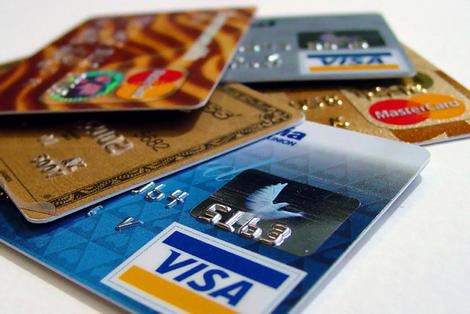Nearly two-thirds (64%) of U.S. adults carrying credit card debt have delayed or avoided other financial decisions because of their debt, according to a new Bankrate survey. Creating an emergency savings fund (34%) is the most-commonly delayed or avoided financial decision. Click here for more information:
https://www.bankrate.com/credit-cards/news/credit-card-debt-report/
About one quarter (26%) say they delayed spending on healthcare and/or wellness due to credit card debt – this includes those who say they delayed spending on health care costs (17%; e.g. medication, medical procedures, etc.) or wellness (17%; e.g. gym fees, weight management programs, meal delivery services, etc.).
Other types of spending delayed because of credit card debt include investing (23%), vehicle purchases (21%), helping family/friends (19%), donating to charity (17%), and home purchases (13%). Respondents could identify more than one spending category as being impacted by their credit card debt.
- Related: Consumer Spending Barely Rises, While Inflation Risk Rises
- Related: How the 50 States Rank By Tax Burden (Updated for 2025)
- Related: 69% of CEOs Say Tariffs Will Hurt Business – Survey
“Americans are dealing with a record amount of credit card debt – $1.2 trillion, according to the New York Fed – and the average credit card rate is around 20%, according to our Bankrate data,” said Bankrate Senior Industry Analyst Ted Rossman. “That hasn’t fallen much from a record set last summer. For millions of American households, credit card debt represents their highest-cost debt by a wide margin.”
Additionally, among credit card debtors, millennials (ages 29-44) and Gen Zers (ages 18-28) are most likely to have delayed or avoided other financial decisions due to their credit card debt, at 75% and 72% respectively. In comparison, 64% of Gen Xers (ages 45-60) and just over half (52%) of baby boomers (ages 61-79) say they have delayed or avoided other financial decisions because of credit card debt.
When looking at health and wellness, 2 in 5 millennials (40%) with credit card debt say they have delayed spending on healthcare (i.e., medical procedures, medication, etc.) and/or wellness (i.e., gym memberships, meal delivery services, etc.) due to their credit card debt. This is compared to 28% of Gen Zers, 21% of Gen Xers, and 17% of baby boomers with credit card debt.
Overall, when it comes to decisions such as making a big purchase, taking a vacation, or looking for a new job, 3 in 5 of those holding credit card debt (61%) say their debt has a “significant” (29%) or “moderate” (31%) impact on their financial choices. Another 24% say it has a “slight” impact, while 12% say it has “no impact” and 4% do not know.
“This is why it’s so important to pay off your credit card debt as quickly and cost-effectively as possible,” Rossman added. “Good strategies include signing up for a credit card with a generous 0% balance transfer promotion, or working with a reputable nonprofit credit counselor such as Money Management International.”
Thanks for reading CPA Practice Advisor!
Subscribe Already registered? Log In
Need more information? Read the FAQs
Tags: boomers, credit cards, debt, financial stress, genx, genz



